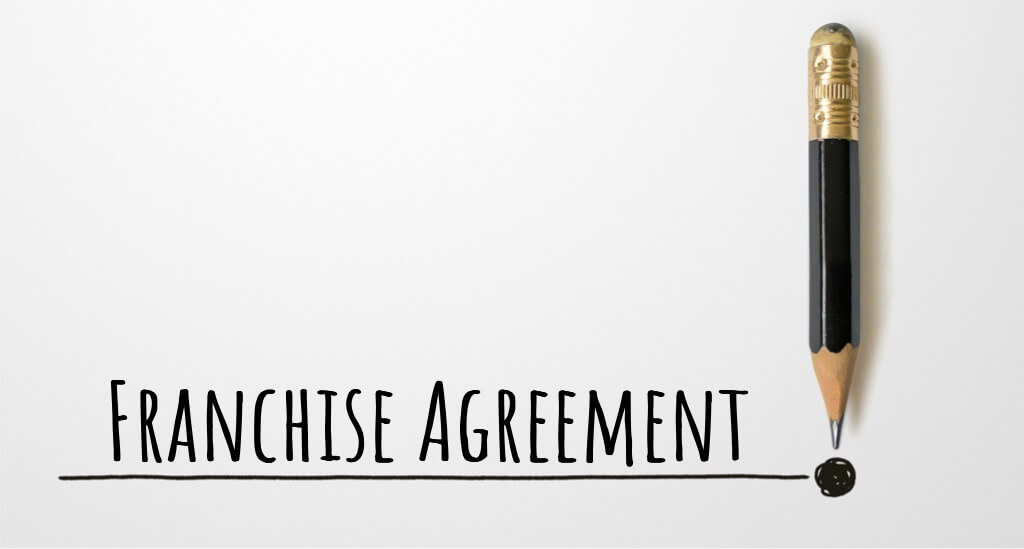
A franchise agreement is one of the most important documents in the franchising industry. It’s a contract that outlines the relationship between the parent company (the franchisor) and the operator (the franchisee).
This agreement communicates two basic things: the responsibilities of the franchisee and the support offered by the franchisor. As you learn how to start a franchise, here are the terms you should include when writing your franchise agreement.
The Responsibilities of the Franchisee
The franchise agreement will spell out the exact responsibilities of the franchisee. This varies by franchise and industry, but the agreement should generally cover the following:
1. Franchise Fees
The franchise fee refers to the initial investment that allows a franchisee to operate under the franchisor’s business name. This franchise fee is typically a one-time, upfront fee specified in the agreement.
2. Duration of the Agreement
Franchise agreements are not indefinite. The franchise agreement will specify the length of time that the franchisee will oversee the location.
This also means that the agreement may provide renewal rights to franchisees. If so, the agreement should explain the timeframe and process by which the agreement may be renewed.
Similarly, the agreement may also include information about the termination or cancellation of the contract. In some cases, the franchisor may include an arbitration clause, which means that an arbitrator would review the case before proceeding to court.
3. Operating Territory
Franchisees typically operate within a specific geographic area or “territory.” The agreement explains the boundaries of that territory and any exclusive rights that the franchisee may or may not have.
This is especially important if the company has multiple franchising locations operating in the same region. Understanding the operating territory is key to working in harmony.
4. Royalties
In addition to the initial franchising fee, franchisees customarily pay monthly royalties to the franchising corporation. These royalty fees can either be a flat rate or a certain percentage of the franchisee’s gross monthly income.
5. Trademarks and Copyrights
The franchise agreement will also explain the legal parameters of operating under the franchisor’s business name. Since the franchisee essentially represents the brand in the community, the franchisor will outline how the franchisee can use the products, signage, and brand name at their franchise location.
The Responsibilities of the Franchisor
The franchise agreement will also answer the question: “What do I get in return?” Here are some of the responsibilities of the franchisor commonly found in franchise agreements:
1. Training Programs
In most cases, no experience is necessary to open a franchise. But this means the franchisor may need to offer training to bring the operator up to speed on the best practices for their company and industry.
At the very least, franchisors will need to explain the standard operating procedures for the franchise location. But some franchisors may offer additional training to enhance the franchisee’s capabilities and skill set.
2. Administrative Support
Knowing how to start a franchise and running a business isn’t always the same thing. In some cases, franchisors can offer additional administrative support in accounting, technical support for certain equipment, and assistance in operational areas.
3. Marketing Materials
When you partner with a major franchise chain, you benefit from their national marketing campaigns, which may include ads on TV, radio, and more. The company often has a corporate marketing department and provides local franchisees with promotional materials (signs, flyers, coupons, etc.).
The franchise agreement will explain what kind of marketing support the company offers and whether the franchisee will need to pay for these materials as part of their operating budget.
4. Startup Support and Equipment
One of the most challenging periods of any business is the initial startup phase. While franchising offers a standardized set of duties, the franchisee will still need to obtain a franchise location and major pieces of equipment.
Franchisors can assist in this process by giving guidance on what type of equipment to purchase and may even have connections with a supplier that can ensure the franchisee gets what they need to succeed.
Franchise Opportunities in Your Area
Hopefully, you now know a little more about how to start a franchise. When you’re ready to start your own journey, use the search tool on our website. Franchise Opportunities can help you locate franchises in your area, so you can experience the freedom that comes from taking command of your first franchise.
